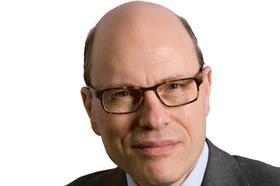Barristers who prosecute and defend people accused of rape and serious sexual offences – so-called RASSO cases – have submitted a strongly worded response to the Law Commission, which is currently considering the use of evidence in sexual prosecutions. The Criminal Bar Association (CBA) has told the government’s law reform advisers that its members are ‘very concerned about the message being presented of a low conviction rate, an inability to trust jurors and an unprofessional body of barristers asking inappropriate questions’.

The CBA says it is also very concerned that the purpose behind the commission’s consultation may be to remove juries – ‘who, it is said, cannot be trusted to come to decisions based on the evidence’ – and introduce judge-only trials.
Although the barristers accept that the percentage of complaints that get as far as a trial is ‘woefully low’, they say that ‘when RASSO cases get to the criminal courts the conviction rate is high. A defendant is more likely to be found guilty than not’.
People forget, they add, that prosecutors need to prove two propositions. First, they must establish that the complainant did not consent to sexual intercourse with the defendant. In addition, a prosecutor must prove that the defendant did not reasonably believe that the complainant had consented.
If the second point is at issue, defence lawyers may need to ask what the complainant did or said in order to establish the complainant’s lack of consent.
The CBA says there is a ‘growing academic discourse from those who have never or rarely observed any jury trials from beginning to end to postulate that juries cannot be trusted to make decisions in rape cases because they are not able or willing to dismiss myths and stereotypes from their decision-making’.
Findings to the contrary, derived from research conducted with real juries in the UK, are dismissed by those academics. But criminal barristers say that the research findings reflect their own cumulative practical experience.
‘In addition, the premise that jurors are influenced by myths and stereotypes has been demonstrated by scientific research on real jurors to be, for the most part, a myth. Jurors do not believe that defendants should be acquitted because of myths and stereotypes in most cases. Where there remain uncertainties, focused and careful judicial directions can preclude errors.’
The CBA’s 87-page submission comes in response to a consultation paper issued by the Law Commission in May. That contained a number of provisional proposals based on earlier discussions with stakeholders. The commission is now analysing responses and expects to publish its final recommendations next year. I am a non-executive member of the Law Commission board but have no involvement in the commissioners’ recommendations.
A key question for the commission seems to be whether juries believe misconceptions about rape – such as that sexual assaults are always promptly reported and that genuine victims will be visibly distressed. It notes that research conducted with real juries by Professor Cheryl Thomas of UCL found that rape myths had far less influence than was claimed. But research in New Zealand, where juries can be asked about their deliberations, suggested ‘some significant degree of illegitimate reasoning’. As a result, the commission proceeded on the basis that there were real risks juries that might, unknowingly, be influenced by rape myths.
To minimise these perceived risks, it provisionally proposed that disclosure of personal records should be subject to greater judicial oversight. Judges would also have to consider what evidence of the complainant’s sexual behaviour should be disclosed and whether a decision to claim compensation should be withheld from a jury.
Under the commission’s provisional proposals, complainants would have the right to give evidence in private. The public could be excluded from a trial, although one member of the media could attend court.
The commission has tested all its provisional proposals against the defendant’s acknowledged right to a fair trial. It says they would not undermine that absolute right.
Many of these proposals are challenged by the CBA. It challenges the existence of a myth that complainants will make false complaints in order to lodge a dishonest compensation claim. It believes that ‘bespoke’ rules on disclosure in RASSO cases alone would be impractical. Excluding outsiders from court should be a decision for the judge in each case, the CBA argues. It also rejects as impractical a suggestion that complainants should have their own independent legal representation at trial.
‘In circumstances where a complainant has not consented to sexual activity,’ says the CBA, ‘it is still eminently possible that a defendant can reasonably believe that a complainant has consented. Both parties can be telling their truth.’
The CBA says it wants to work with the commission and improve the court experience for all concerned. On how best to achieve that, though, the jury is still out.
joshua@rozenberg.net































5 Readers' comments